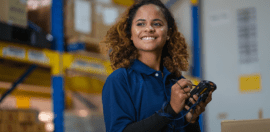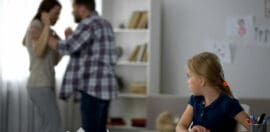The hidden crisis of COVID-19

24 March 2020 at 5:24 pm
Australians are being told to stay at home to keep coronavirus at bay. But what if that home isn’t safe?
Domestic violence organisations are banding together to raise awareness of another crisis taking place behind closed doors – the rising number of women experiencing violence at home.
With more people across the country now working from home, workplaces and schools shutting down entirely, and workers being made redundant, experts are warning that many abusers will escalate their violence.
Advocacy groups are urging state and federal governments to act swiftly to protect vulnerable women trapped at home with abusive partners.
It follows news that domestic abuse reports in China have as much as tripled during the recent periods of isolation, and there have been reports in America of men threatening to lock women out of the house so they get sick.
Nicolle Edwards, RizeUp Australia CEO, said with the focus on health issues around COVID-19, the women and children at risk of or already experiencing family violence could be forgotten.
“It is during times of stress that those at risk of family violence are likely to be most in danger so it is imperative that these women and children have the support that they need to enable them to get to a safe place if required,” Edwards said.
Renee Carr, the executive director of Fair Agenda, said governments needed to factor women’s safety into their response plans.
“That means addressing the risks to women and kids who are going to be trapped with the person who is abusing them, during in-home isolation,” Carr said.
Campaign launched
Fair Agenda has now launched a national campaign calling on the federal government to resource the specialist family violence services sector. The campaign currently has 750 signatures.
“It’s more important than ever that we pull together and do everything we can to ensure people are put first in government responses,” Carr said.
She said until the necessary government support was provided, Fair Agenda would be working with service providers to shine a spotlight on the gaps in the current response, the risks those gaps were creating for women, and to amplify the calls for interventions that women at risk in their home desperately need.
Services stretched to the limit
With women and children at greater risk of experiencing abuse in times of disaster, frontline workers said they were already prepping for a surge in demand for services.
Jon Owen, pastor and chief executive of Sydney’s Wayside Chapel, told the ABC on Friday that he had already noticed a “significant increase” in women accessing support for domestic violence in the past fortnight.
David Spriggs from Infoxchange told Pro Bono News the number of people accessing the organisation’s Ask Izzy domestic violence website had sharply increased.
But Edwards said she feared that volunteer and donation-reliant organisations like RizeUp would not be able to keep up with the increased demand for services.
“Demand for our services was already outstripping what we could deliver before COVID-19,” she said.
“My fear now is that at a time when businesses are tightening their belts and volunteers are unable to support us in the numbers they usually do, we are going to have fewer resources to face what will be an even greater problem than before.”
She also said that all fundraising events for the year had been cancelled, which had put an extra strain on the organisation.
“The biggest obstacle we now face is lack of fundraising activity with all our events for the year cancelled. Our worries would be significantly allayed if we reached our campaign goals,” Edwards said.
Dr Merrindahl Andrew, program manager of Australian Women Against Violence Alliance, said that as with every other sector of society, COVID-19 had complicated the work of women’s safety specialists, and now they needed extra help.
“Like all the services that work for the wellbeing and safety of our community, specialist family violence workers are using their expertise to find the best ways of providing support. In order to do this, they need additional resources,” Andrew told Pro Bono News.
If you or anyone you know needs help, please call the national helpline 1800RESPECT on 1800 737 732.








